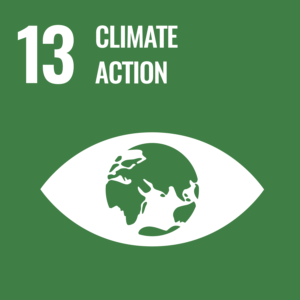Stakeholder prevention and reduction of inefficiencies in food management at the consumer level
 WHAT IS SPRINT?
WHAT IS SPRINT?
Consumers are affected by tangible factors, but also by others that directly influence human behaviour, which motivates food waste. The SPRINT project proposes to use this premise as a guide to propose innovative interventions, which aim to mitigate bad practices and establish a contrasting relationship with the context that surrounds them (economic, political, social, etc.). All this is proposed in 3 scenarios in the south of Europe.
OBJECTIVES
To achieve the purpose of the project, SPRINT will pursue several objectives:

DURATION
June 01, 2024 – June 01, 2026
PROJECT WEB
Inicio
WHY?
The engine that drives this project is based on the need to have reliable and representative information through appropriate methods. The two main gaps to be addressed are: (1) the lack of studies grounded in evidence-based interventions, and (2) the predominance of a hierarchically organized approach to finding solutions to reduce food waste.
The elimination of these deficiencies will bring a long list of improvements in terms of communication and understanding between the interested parties. In addition to fostering a more imaginative environment when proposing solutions and possible interventions or identifying deficiencies and causes. The systemic approach that SPRINT aims to achieve will allow the creation and implementation of effective and well-informed laws.
Thus, the aim is to improve the adaptability of strategies, in different contexts, through the collective understanding of all the aspects involved.
METHODOLOGY
The intervention research project will be carried out through a process made up of 6 steps.
- Identification of the problems: The initial state of food waste generation patterns will be examined through a national survey.
- Commitment of the various interested parties and co-creation: Promote collaboration between all interested parties in each context studied to design possible interventions.
- Development of technological tools: and other materials necessary to carry out the interventions.
- Refinement and deployment of the intervention: The interventions will be carried out in the 3 scenarios mentioned above during a period of 12 months.
- Impact assessment: Measure the difference in waste before and after the intervention, as well as the environmental, social and economic impact of the interventions.
- Diffusion of results: Maximize the value of the results obtained with the project.
The SPRINT project has received funding from the Single Market Programme (SMP) grant agreement no. 101156435 of the European Commission.

PARTICIPATING PARTNERS
| AUTONOMOUS COMMUNITY | ORGANIZATION | TYPE OF ENTITY |
| Asturias | Club Asturiano de la Innovación – INNOVASTURIAS | Non-profit organization |
| Asturias | Asociación de Investigación de Industrias de la Carne del Principado de Asturias – ASINCAR | Non-profit organization |
| Asturias | Abamobile Solutions SL – ABAMobile | Company |
| Asturias | CIS ROBOTICS Smart Solutions – CIS ROBOTICS | SME |
| Asturias | Red Turística Menorquina SL – ARTIEM Hoteles | Company |
| Asturias | Hijos de Luis Rodríguez SA – Masymas Supermercados | Company |
| Catalonia | Centre de Recerca en Economia i Desenvolupament Agroalimentari – CREDA | Research Center |
THE ROLE OF CREDA
TASK
CREDA provides experience in the socio-economic field, leading WP2 that maps and assesses the initial situation of food waste in the contexts studied; the WP3 where the methodologies of the pilot cases will be defined, and the interventions will be co-created; as well as WP4, where selected interventions will be implemented and monitored to induce a change in the behaviour of stakeholders.
In addition, CREDA is leading the collection of WP5 data to analyse the environmental, economic and social impact.









